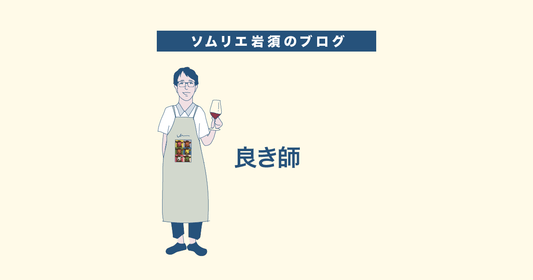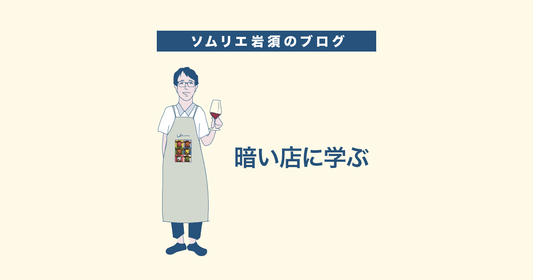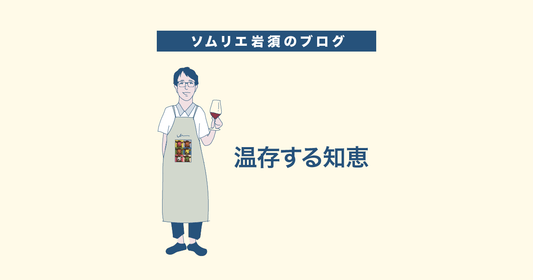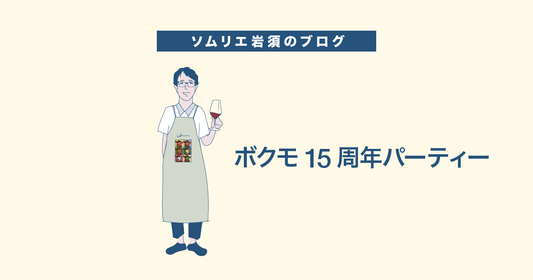 The world is buzzing with the arrival of the new SNS "Clubhouse ." I'm happy that "audio-only" things are popular again after a long time. The reason is that, in addition to running a restaurant, I also work behind the scenes on radio, which is the representative of audio-only media, and I have a stronger love for "audio-only" than most people (I've been doing it for about 25 years now).
The world is buzzing with the arrival of the new SNS "Clubhouse ." I'm happy that "audio-only" things are popular again after a long time. The reason is that, in addition to running a restaurant, I also work behind the scenes on radio, which is the representative of audio-only media, and I have a stronger love for "audio-only" than most people (I've been doing it for about 25 years now).
For a while now, visually-focused content like YouTube and Instagram has been popular, but now the times are shifting to audio only! I guess that's what I'm saying, an audio-only world is great! I see, people really do like audio after all! I'm watching this situation with a smile on my face.
However, it's not enough to just watch and smile, so this time I'd like to write a little about my impressions of participating and what I think will make it more interesting in the future.
Before we talk about Clubhouse, let's first talk about radio, its predecessor that is just sound.
I think that popular radio shows (and talk sections) today can be summed up in the following three elements:
- Celebrities telling other interesting stories that are only available to them = name value (this is the strongest content)
- Experts introduce their specialized knowledge = specialization
- The spokesperson speaks in a way that resonates with the listeners = empathy
Although I've divided them into three, popular programs are not made up of just one element; rather, the appeal of the content is created by the "multiplicative combination" of the three, each with its own strength.
So, when I tried out Clubhouse, I found that this law of multiplication of these three elements applied exactly.
For example, rooms where celebrities chat quickly attract people (name value type) , while entrepreneurs and consultants talk lively about their fields of expertise (specialized type) . In rooms named after places, people who live there chat with each other, saying things like, "Ah, I know what you're talking about," and having lively conversations (empathy type) .
And when all three of these elements are strong, it gets even more exciting.
A person with a name value specializes in something and talks about things that resonate with people. This is the pattern of comedians' radio shows. I also tried joining rooms on Clubhouse that were run by debaters, musicians, and writers, and they were all really exciting.
So, what about wine?
After trying it for about three weeks, I found that there are quite a few wine lovers among the people using Clubhouse.
That's right, wine lovers are generally thought of as "geeks", but in fact, there are a number of them who should not be underestimated. The total number of people who have qualifications such as "sommelier" or "wine expert" from the Japan Sommelier Association has exceeded 70,000 (there are not many countries with so many people with wine qualifications).
There are 70,000 people who have passed the "written test full of memorization of katakana" and the "tasting test where you are possessed by a European." That's amazing.
Of course, if you add in the numbers of people who didn't pass the exam, people who are planning to take it, and people who aren't particularly interested in the exam but love wine, it's not hard to imagine that there is a fan base that is far from being niche.
And yet wine is rarely discussed in old media such as television and radio (although I thought the ratings on the New Year's special were really interesting! I hope they do more of them).
There are many people who want to share their nerdy knowledge with everyone, even if they don't usually use it, and there are many professionals who are eager to learn more. However, nowadays, it is difficult to go out to eat, and there are few opportunities for wine lovers to gather at wine parties. For some people, there are almost none. They can't get the "pleasure of empathy" that comes from wine talk.
So, people who are hungry for that kind of empathy are thriving on Clubhouse. After all, meeting people who understand you is the true value of social media.
For wine lovers, it's fun just to listen to each other talk about the wines they're drinking today, saying things like, "That's delicious," "I didn't know it had such characteristics," "This would go well with this dish," etc. Furthermore, the talks of experts such as wine lecturers and wine brewers are an irresistible snack to go with your drinks.
I've had the opportunity to chat with him a few times, and it's really fun when people say things like, "I understand!" or "Wow!" I really felt what Kenji Ozawa said: "Sharing joy with others is what makes the world hotter."
If in the future, a giant in the wine industry, such as Tasaki Shinya, were to take the stage to combine this "specialization" and "empathy," it would be multiplied with the most powerful card, the "name value," and I'm sure it would create a huge buzz (although I don't think Tasaki will do it).
However, the excitement there is more like a seminar. The more people in the audience, the more impressive the meeting. It's like you're excited and lucky if you raise your hand during question time and someone points at you. It's good, but it's not very new.
What I want to focus on more than that is "people with maniacal passions meet on Clubhouse and a chemical reaction occurs." This is a room where the power of "specialization" x "empathy" is unusually strong. I think there is new value here.
Anyone who has used Clubhouse for any length of time will know that there are a lot of "amazing people out there who aren't well known" (although there are also some who just pretend to be amazing).
There are "people who haven't been in the public eye until now but can talk about really interesting things" and "moderators (people who act in a host-like role) who are incredibly good at steering the conversation."
Even in the wine room, there are people who have their own specialized knowledge, are good talkers, and are good listeners.
For example, if a restaurant owner hears such a person speak, he might think, "This person has such knowledge and is so good at communicating, I'd like him to work for us," or a wine company might think, "I'd like him to help us with our public relations."
Alternatively, I think there is a good chance that discussions will turn to things like, "Let's import wine together" or "Let's create a media outlet to promote Japanese wine."
In other words, people with the same obsessions meet each other. And there are people with the same obsessions listening to it. I think that's what's interesting about Clubhouse.
Lies are easily exposed when you talk, and if you don't speak from your heart, you end up sounding shady. It's very easy to tell how sincerely someone is speaking. I think that being raw is a characteristic of "live audio media" like live radio or Clubhouse. So, if the raw fun resonates with each other, I think it could lead to some interesting projects.
I feel like in the near future it will be common for people to say, "I thought this person was interesting on Clubhouse, so I reached out to them, and now we're working together."
Huh? What's next for radio?
This is a bit of a different angle, but I'm sure that people who are in charge of radio programming and production are now trying to find "really talkative, really interesting people" on Clubhouse. Because I was able to reaffirm that "everyone likes just the sound!" I realized that there are people who can enjoy just the sound.
Perhaps we should take advantage of this once-in-a-lifetime opportunity to gather "talented people with a passion for speaking" on radio and build a branding that is "top-level in just sound = speaking on the radio."
This week's wine and snacks
INVIVO × SARAH JESSICA PARKER SAUVIGNON BLANC 2020

The first words that came out of my mouth after drinking it were "Thank you for your hard work!"
This is a New Zealand wine supervised by actor Sarah Jessica Parker. It is a 2020 Marlborough Sauvignon Blanc .
The 2020 vintage wine was the first to be grown, harvested, and brewed during the COVID-19 pandemic. Harvesting in particular is a task that requires many people to do all at once. The grapes used to make this wine were probably harvested in February or March of 2020 (autumn in the Southern Hemisphere), and naturally, at that time, the number of people working should have been limited and distancing should have been maintained. It must have been more difficult than one would imagine to carry out the same tasks as usual while taking measures against infection.
The finished product was so amazing! So I took a sip and thought, "Ah, that's great. Thank you for all your hard work."
The flavor is more reminiscent of subtropical fruits like passion fruit and mango than citrus fruits like grapefruit. It has a pleasant acidity and a complex fruit flavor.
Drinking Sauvignon Blanc in a warm room in the winter is also nice.

I paired it with a white sausage with a Tasaki Shinya sticker on it (I have a weakness for the Tasaki logo, so I always pick it up at the supermarket. Perhaps I'm unknowingly won over by the combination of ``name value x specialization x empathy'').
A spicy sausage with a strong pepper flavor. It goes really well with mustard.
Thank you very much, thank you for your hard work.





